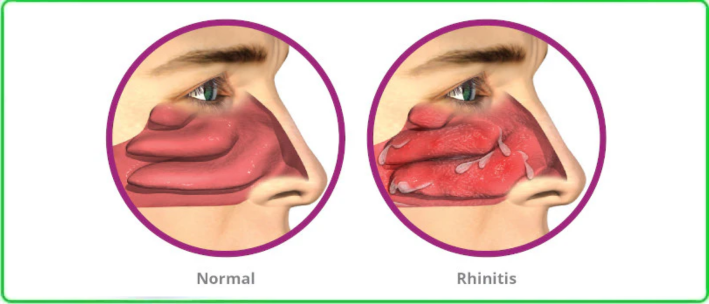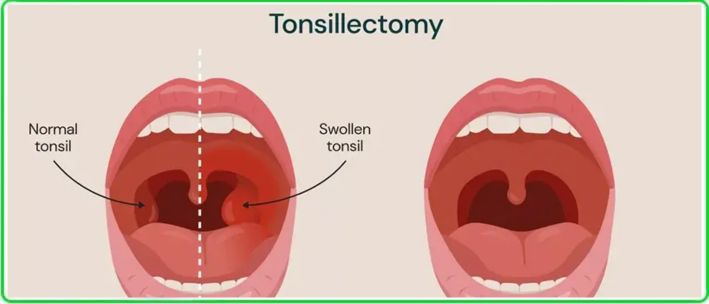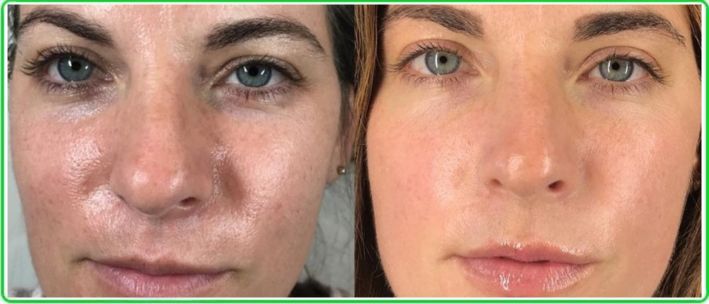ALLERGIC RHINITIS – HOW TO TELL IT APART FROM A COLD

Runny nose, endless sneezing, itchy eyes, and fatigue. Your pockets are full of tissues. At first glance, the symptoms of allergic rhinitis and the common cold look alike — but they are two very different conditions. A cold goes away on its own, allergy does not. Moreover, without proper treatment, allergic rhinitis may progress and lead to bronchial asthma.
What Is Allergic Rhinitis?
Allergic rhinitis is like an “overreaction” of the upper airways. A harmless substance (pollen, dust, animal dander) is mistaken for a dangerous invader. The immune system produces immunoglobulin E (IgE), which triggers mast cells to release histamine and other mediators. The result: runny nose, itching, sneezing, watery eyes, and swelling.
What Triggers the Immune System?
Allergens are classified into major and minor:
- Major allergens are proteins that cause true allergy in most patients (more than 50%). They are heat-resistant and usually present in higher amounts.
- Minor allergens are less common, sensitizing fewer than 10% of patients. They are smaller, less immunogenic, often heat-sensitive, and can cause cross-reactions due to structural similarity with other allergens.
How to Identify Allergic Rhinitis
Only an ENT doctor, pediatrician, or allergist can reliably distinguish allergic rhinitis from a cold, especially if symptoms appear for the first time. The “gold standard” diagnostics include:
- Endoscopic examination of ENT organs: precise assessment of the nose, nasopharynx, and sinuses.
- Comprehensive airway evaluation.
- Molecular allergy testing: identifies both major and minor allergen proteins. This method can be done at any stage of the disease, at any age, and has no contraindications.
What to Do Before the Consultation
Before visiting a doctor, note the following:
- family history of allergic diseases,
- connection between symptoms and allergen exposure (e.g., sneezing after contact with a cat or during a walk in nature),
- type of nasal discharge (clear and watery vs. thick mucus),
- body temperature (normal or elevated).
When to Seek Emergency Medical Care
Call an ambulance or go to the clinic immediately if you develop:
- severe shortness of breath,
- changes in skin color (pale or bluish),
- intense anxiety,
- hoarseness of voice,
- severe paroxysmal cough.
These may indicate airway obstruction or complications.
How to Help Patients with Allergic Rhinitis
The key to treatment is knowing the exact allergen. Management depends on severity:
Case 1. Mild Symptoms
Vadim, 18, artist. Sneezes for hours with watery nasal discharge. Symptoms stop only at home, among his paintings.
Treatment: oral antihistamines and antihistamine nasal sprays.
Case 2. Moderate or Persistent Symptoms
Svetlana, 25, teacher. Daily sneezing and congestion for more than 4 weeks. Manages daily life but cannot go anywhere without a pack of tissues.
Treatment: nasal corticosteroid sprays + antihistamines or leukotriene receptor antagonists.
Case 3. Severe, Poorly Controlled Symptoms
Alexander, 30, driver. Seasonal symptoms last 2–3 weeks, disrupting sleep and daily performance.
Treatment: combined corticosteroid + antihistamine nasal sprays; short course of oral corticosteroids (3–5 days, very limited).
Case 4. Severe, Resistant Allergic Rhinitis
Joseph, 40, asthmatic. Constant nasal congestion, sneezing, snoring, poor sleep. Cannot part with his beloved cat.
Treatment: allergen-specific immunotherapy (ASIT), biologics, baseline therapy with corticosteroid sprays + antihistamines.
Special Considerations in Children
- First-line therapy: antihistamine drops or syrups.
- Nasal corticosteroid sprays (mometasone, fluticasone) are safe from 2–6 years.
- ASIT is possible from age 5.
Can Decongestant Drops Replace Long-Term Therapy?
Absolutely not. Decongestants should only be used short-term and under medical supervision. Prolonged use leads to mucosal damage, addiction, and systemic side effects.
Can Allergic Rhinitis Progress?
Yes. If untreated, allergic rhinitis may progress to bronchial asthma, laryngotracheitis, hearing problems, chronic fatigue, or snoring.
Are Home Remedies Effective?
No. At best, they do not help; at worst, they may trigger dangerous complications like bronchial obstruction.
Prevention Tips
For allergy sufferers:
- Use hypoallergenic pillows and mattresses.
- Regular wet cleaning and HEPA filters.
- Avoid keeping pets, indoor plants, or spending time outdoors during peak pollen season.
- Consider allergen-specific immunotherapy (ASIT).
Allergy Treatment at KindCare Medical Center
At KindCare Medical Center (Dubai), diagnosis and treatment of allergic rhinitis is carried out with modern techniques:
- ENT endoscopy for accurate evaluation of nasal cavity, nasopharynx, and sinuses.
- ENT consultation with full airway assessment and tailored treatment plan.
- Molecular allergy testing to detect both major and minor allergens.
- ASIT therapy with personalized protocols, step-by-step monitoring, and patient education.
- Modern medications for symptom control: antihistamines, topical corticosteroids, and combined treatments when necessary.
Our goal is not just to temporarily relieve symptoms, but to help patients live free from allergies, reduce the risk of complications, and restore quality of life.












